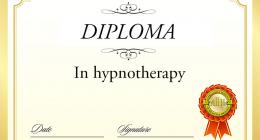FAQs About Hypnotherapy & Psychotherapy

Hypnotherapy & Psychotherapy
Each of us has an unlimited number of subconscious programs that we have developed as a result of our experiences in life. These programs are developed during our childhood and consequently operate automatically, and are activated by certain events or conditions or people.
These subconscious problems can be called personal skills, learning, habits or even fears or phobias depending on the nature of the subconscious program. Limiting behaviours, beliefs and values, negative self talk can be a result of subconscious programming that developed during our childhood. These can be changed to have a more positive approach to life using clinical hypnotherapy, clinical psychotherapy and transpersonal counselling.
The subconscious mind's nature is very childlike. It likes to play, have fun and enjoys routine and moves into methodical procedures quite easily. It learns very well with a lot of repetition and it can be very demanding in what it wants and when it wants it. It can form beliefs, likes familiarity and approval with most conditioning is formed between the ages of 0-7 years. Its response is automatic to whatever 'programming' has been taken in.
What is Hypnotherapy?
Hypnotherapy is a method used to help a person use their mind in better ways to resolve their problems or issues. A person can assess information, explore the conditions and perceptions to be treated in order to make more informed decisions about how they wish to live their lives.
What is Psychotherapy?
A therapy connected with the mind/body relationship from the 'internal' and 'external' aspects of the mind. Internal discipline is concerned with a person's thoughts, beliefs, attitudes, feelings, emotions and outlook on life. External discipline is concerned with a person's role and function in the world around them, in particular relationships, work, group and family interaction.
Here are some frequently asked questions about Hypnotherapy & Psychotherapy:
What is a typical therapy session like?
On the first session, the practitioner's goal is to understand as much as possible about you and the presenting problem(s) or issue(s). Only with a good understanding of what is happening or what has happened, can the best solution be developed.
If it is appropriate for the presenting problem, hypnotherapy may be used. However, the problems can be resolved with counselling, psychotherapy and psychophysical therapy. Other forms of therapy such as Reiki & Seichem healing and flower remedies may be integrated for relief of emotional or mental disharmony.
What problems can be resolved using Hypnotherapy and Counselling?
Hypnosis is an extremely powerful tool to assist you in transforming the way you experience life. While in this deeply relaxed state, long formed habits and behaviour modification can take place. Hypnotherapy combined with other mind and body solution therapies can assist you with problems or issues such as:
- Self Image
- Pain Relief
- Goal Setting
- Quit Smoking
- Weight Control
- Self Confidence
- Most Depressions
- Self Esteem
- Unresolved Grief
- Personal Problems
- Fears and Phobias
- Anxiety and Panic
- Sleeping Difficulties
- Relationship Problems
What are the benefits for me?
- Gain self worth
- Increase energy
- Gain self esteem
- Improve self image
- Gain self confidence
- Feel relaxed and calm
- Change limiting beliefs
- Change limiting values
- Improve sleep patterns
- Become self empowered
- Improve clarity and focus
- Change unwanted behaviour
What is hypnosis?
Hypnosis is a state of deep relaxation which is natural and safe. It is a state of mind where a person is conscious, aware of physical sensations and surroundings. In this deep relaxed state of altered consciousness, a person is more receptive to therapeutic positive suggestions.
The main phenomenon is to enter a peaceful and productive state of self-absorption where the person can focus on their inner mental world. When persons enters a hypnotic state, the conscious mind is able to communicate directly with the subconscious. While in this state the subject is many times more mentally aware than in normal conscious state.
Am I in control during hypnosis?
You are in complete control during a hypnotic state. You will only do and say whatever you are comfortable with. You are able to wake up at any time during the session.
How safe is hypnosis?
It is a natural and beneficial experience that is free from drugs. The hypnotic state is maintained by mutual cooperation between you and your hypnotherapist.
By accessing the deeper states of awareness of the subconscious mind it is possible to gain important life changes. This is done by creatively working with memory, learning and behaviours (State Dependant Memory, Learning and Behaviour).
By involving the subconscious mind; habits, compulsions and addictions can be restructured or reframed so that positive changes can be introduced. Sometimes we can be stuck in non-productive patterns of behaviour and hypnotherapy is effective in helping to bring about desired change.
What does it feel like being under hypnosis?
Many people experience different sensations and the depth of relaxation varies from person to person. It is very common to feel drowsiness together with pleasant feelings of peace and calmness.
You are able to hear the hypnotherapist's voice and be directed to a desired positive outcome for each session.
What can I achieve from each session?
The aim of each session is to find the best solution for the given circumstances using the best methods of mind therapies.
Do I remember everything under hypnosis?
You can remember everything while you are under hypnosis, unless of course, you do not want to remember. You are totally mentally alert during hypnosis.
How many sessions do I need?
The number of sessions vary from person to person depending on their problem and issue. It is important to note, that the number of sessions depends on YOU and how well you are coping and what courses of action are being used by your in between your sessions.
How successful is hypnotherapy?
The hypnotherapy can be very successful depending on the individual and the issue to be resolved. To have the best change of success is to:
- Take positive action
- Be committed to reach a positive result
- Be committed to attending each session
- Ask questions for greater understanding
- Never give up until the desired result is reached
- Try the suggested strategies in between sessions
- Have positive thoughts during and after the sessions
What can I learn from the sessions?
If something happens, you react to that event by conscious choice or by subconscious programming. By becoming aware and understanding how you react to certain events or situations, you can learn new or more appropriate ways to deal with those situations in a more effective manner.
Am I supported during therapy sessions?
You are definitely supported during your therapy sessions. The practitioner cares about you and the commitment you have made in coming to the sessions. A program is developed by the practitioner to ensure quick and lasting results.
Change is the only certainty in life. If you WANT something to change and you are 100% committed to change for a better life, then all you have to do is to understand the process, learn and apply new strategies and techniques to your life.
No one is alone - You have total support during your sessions!
We need to take the positive learning from our interactions with others to move towards a more positive and exciting life of success, abundance and prosperity.
What relaxation techniques are used?
Relaxation is necessary to reduce our stress levels and help us cope with daily activities and life's challenges. Relaxation can assist us to find inner calm, enjoy a zest and enthusiasm for living. This can be done by guiding the mind to accept different images and thoughts to quieten the mind.
There are many proven techniques to help the mind and the body to relax. By relaxing the mind, you can become more focused, gain a sense of calmness, feel connected with life, renew your direction and be able to make better decisions.
Qualities of a Qualified Hypnotherapist or Psychotherapist
The hypnotherapist, psychotherapist and the transpersonal counsellor should be qualified and members of recognised professional associations. Their currency registration should be displayed on the walls for your perusal.
A qualified therapy practitioner should:
- Be open minded
- Be non-judgmental
- Be an active listener
- Be sincere and genuine
- Committed to confidentiality
- Respect in treating the client
- Respect the client's view point
- Consider of the client's situation
- Adhere to the practice code of ethics
Self Healing Using Creative Visualisation
Creative Visualisation is a self healing technique. Some people call it guided imagery. Relaxation or meditation allows you to connect with your inner guidance to feel part of life.
Self healing relaxation provides a range of techniques to visualise, feel or imagine different images or pictures to dissolve self limitations, release negative thoughts, fear or pain that may prevent you from moving forward in your life.
Relaxation or meditation is a wonderful method used to set personal goals about what you really desire, what you want to do and enables you to create a new and positive future.








